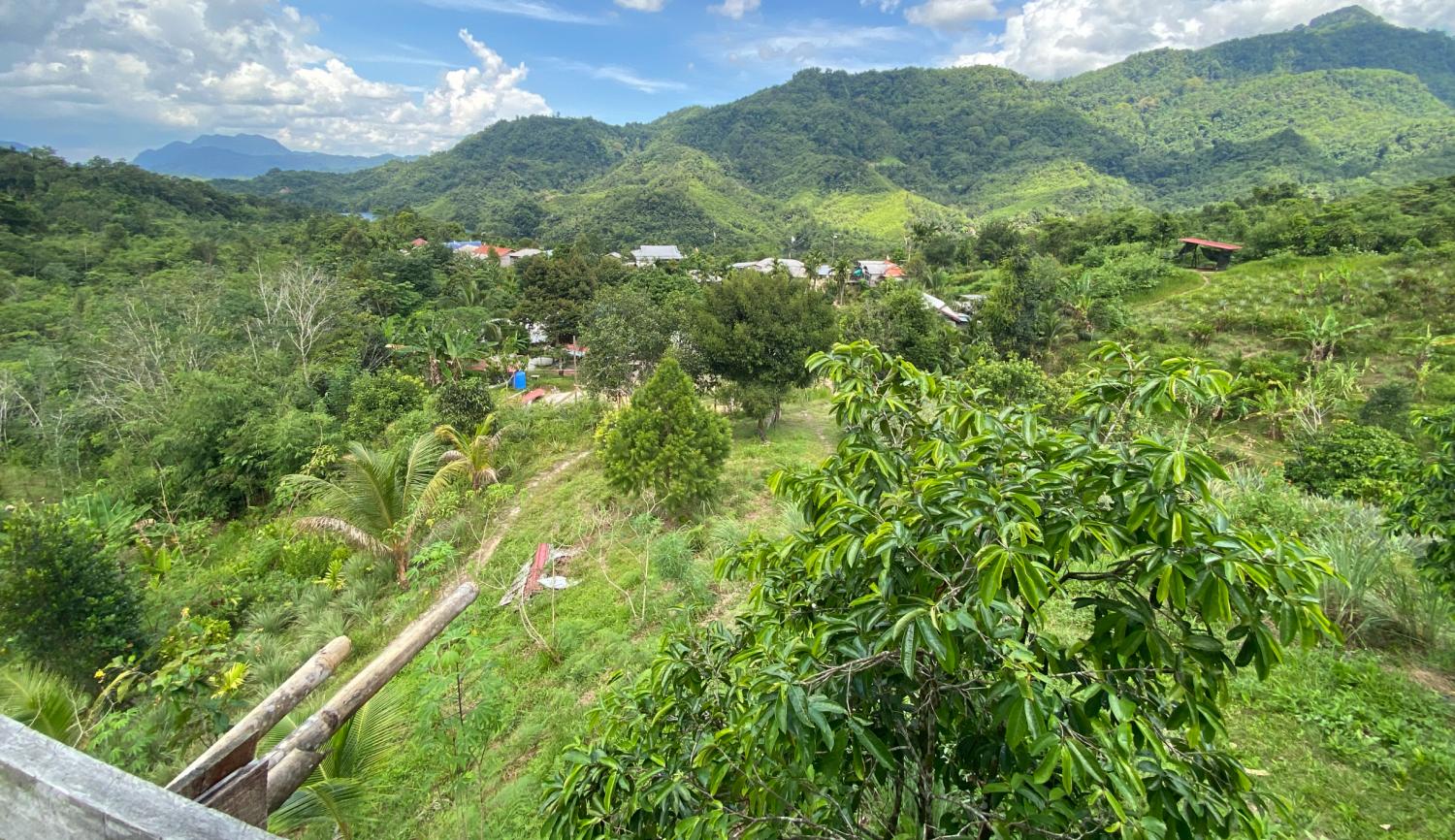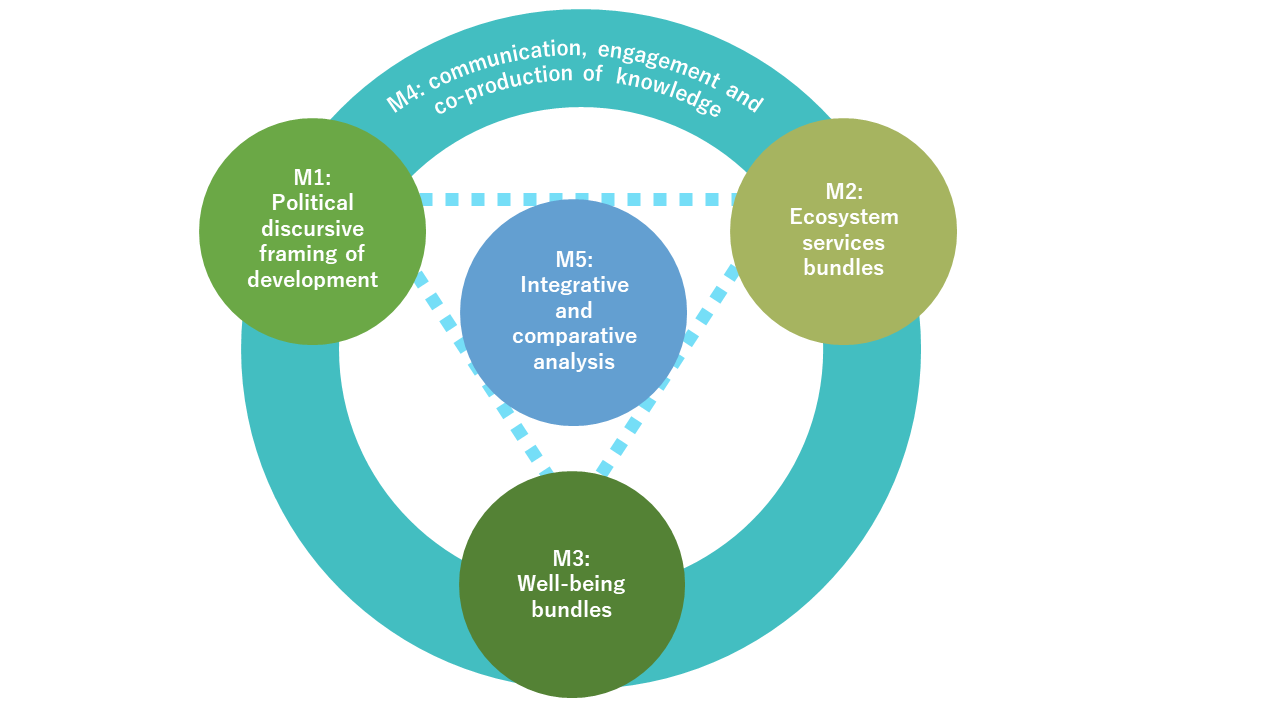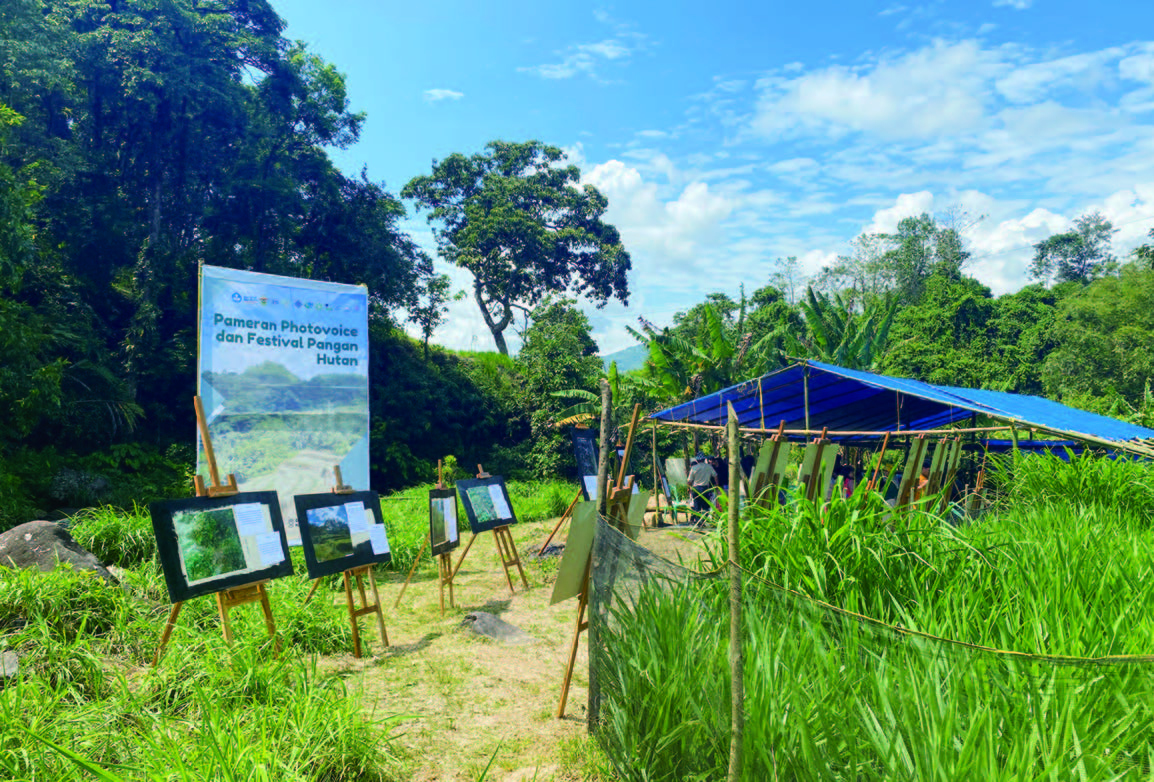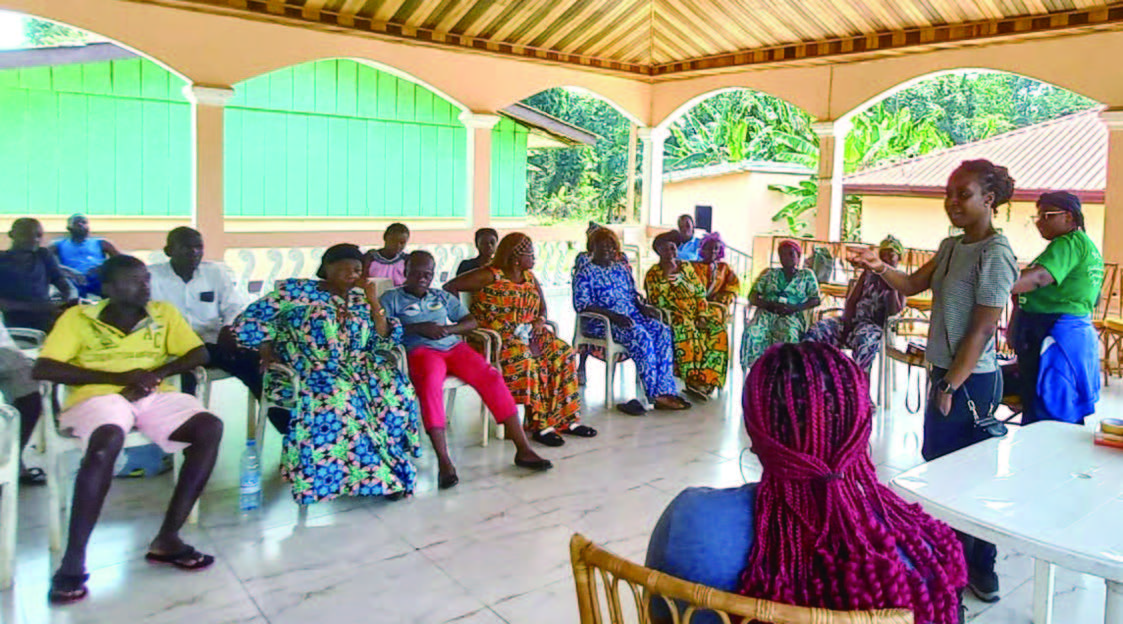
Research Program
Combining Knowledge for a Fundamental Innovation of Land Use Program
FairFrontiers Project
- Related links
Fair for Whom? Politics, Power and Precarity in Transformations of Tropical Forest-agriculture Frontiers
Abstract
Deforestation and land use intensification in the tropical frontiers of Central Africa and Southeast Asia are rapidly transforming landscapes, livelihoods, and local well-being. This is both a global environmental problem and a local social-ecological crisis. This project carries out critical policy analyses and case study research to identify the conditions for how development and transformation of forest-agriculture frontiers can enable more equitable and sustainable development.
Forest-agriculture frontiers of diverse swidden and smallholder practices are rapidly being converted to homogenous landscapes of commodity plantations and mines across the tropical Global South. These frontiers of agriculture, fallow and forest mosaics provide multiple ecosystem services, support social, cultural and livelihood needs, and are areas where indigenous communities and local people have traditional rights to land and resources. Land use intensification is often pursued as ‘sustainable development’ and progress, but has not led to expected win-win social and ecological outcomes. Indigenous groups and smallholders in these landscapes have simultaneously engaged with, adapted to, and resisted against different development, and yet regularly find themselves and their customary rights marginalized at the expense of interests of local elites, State and external investors, reflecting the complexities of underlying politics, institutions and power structures around forests and land-use. FairFrontiers applies inter- and transdisciplinary approaches to ask: Whose interests drive the transformations of forest-agriculture frontiers, who benefits and who is made precarious? What are possible policy options that can deliver ecologically sustainable and socially equitable outcomes?
To address these research questions, the project carries out five interlinked strands of research in Southeast Asia (Malaysia (Sabah, Sarawak), Laos and Indonesia) and Central Africa (Cameroon, Democratic Republic of the Congo). The first research module delves into the historical (and colonial) constructs of policies for forest and land governance, and their contemporary pathways, and carry out critical discursive analyses of how policies frame and problematize development in forest-agriculture frontiers. The second and third modules examine how ecosystem services and well-being bundles are changing in frontiers, using a set of mixed social and ecological field methods and participatory approaches. The fourth module applies transdisciplinary approaches in the co-production of knowledge and inclusion of diverse local narratives and values. The fifth module carries out integrative and comparative analyses across modules, scales and countries through structured qualitative and quantitative analyses. Together, they provide insights into issues of equity, justice and transformation. All research is carried out collaboratively with country partners and involve researchers, civil society activists, conservation practitioners, villagers and students.
The case study regions have unique ecological, social,institutional and political contexts, enabling our novel research approaches to collectively contribute towards advancement of theory and identification of equitable and sustainable development pathways for the millions of people who still depend on these diverse landscapes for their livelihoods and well-being.
Results
What we know so far
Under Module 1, we analyzed the case of REDD+ and argue that the construction and interpretation of data and information are shaped by the social and political contexts in which they emerge (Brockhaus et al. 2024). It explains in part why new and ever larger amounts of data available for analysis still remains insufficient for changing business-as-usual deforestation. Another paper carried out a discursive analysis of British business print media’s representations of ‘the local’ in Cameroon’s land, forest and plantation sectors from 1850 to 2010 (Goldsmith et al., in review). The authors argue that although narratives have changed, existing mechanisms are still sticky in re-producing inequalities between ‘the local’ and finance and business interests.
Our findings under Modules 2 and 3 provide insights into the complexity of social-ecological relations in the changing frontiers. W. P. Maung et al. (2025) show that foreign agricultural investments promoted by the state have driven extensive changes in farming practices in Northern Laos. While this may help some farmers to earn more, many others struggle with loss of access to land and forests. Sidibe et al. (in review) find that local people living near Upemba National Park in DR Congo are heavily reliant on natural resources and have a strong place attachment to their agricultural land, but their wellbeing are also impacted by a history of displacement and war. Both papers call for more inclusive governance and nuanced planning processes to support more equitable development.
The project uses photovoice as a form of knowledge co- production (Module 4). Under the theme of ecosystem change and wellbeing, photovoice participants in Sulawesi used photos and stories to express their frustrations and hopes in a landscape dominated by state interests (Sahide et al., in review). With support from partners at Universitas Hasanuddin, the participants held an exhibition and a fiery dialogue with policy actors to call for recognition of their customary rights (see photo 1).
Noteworthy items
The project held an international seminar under the Land Use Innovation series on “The Political Frontier: Bridging Political Economy and Political Ecology”. Prominent researchers Nancy Lee Peluso and Maria Brockhaus discussed the theoretical approaches, methods and analysis for examining forest and land use change. Project researchers from Indonesia and Borneo provide grounded and sometimes conflicted understandings of resistance and indigeneity.
Project members contributed to global assessments in two chapters that examine finance as a driving force of social and ecological change in frontiers in the IUFRO Global Assessment on Forest Governance (Brockhaus, Wong & Obeng-Odoom 2024) and the IPBES Nexus Assessment (Wong, Chapter 2 lead author).
The project is publishing a special issue in Forest & Society journal on “Navigating change in forest-agriculture frontiers: Centering equity and justice in land use transformations in the Global South”. Thus far, 6 articles are published (including Wong et al. 2024), and 2 additional articles are in review.
All field research and data collection are now completed, and photovoice activities are ongoing in the Campo region in Cameroon (see photo 2) and Upemba National Park in DR Congo.
News
-
{{ data.disp_date }}
{{ data.content }}
Member
Project Leader
WONG, Grace
Associate Professor, RIHN / Stockholm Resilience Centre, Stockholm University
Sub Leader
BROCKHAUS, Maria University of Helsinki
MERTZ, Ole University of Copenhagen
BRUUN, Thilde Bech University of Copenhagen
MOELIONO, Moira CIFOR-ICRAF
SAKAI Shoko Hong Kong Baptist University
Researchers at RIHN
SIDIBE, Alimata Senior Researcher
METARAGAKUSUMA, Andi Patiware Researcher
WAI PHYOE MAUNG Researcher
SUJASWARA, Azwar Azmillah Research Associate
KAN Ayami Research Associate
Main Members
AGUIAR, Ana Paula Dutra de ASSEMBE-MVONDO, Samuel (Brazil National Institute for Space Research Wildlife Conservation Society)
BRUUN, Thilde (Bech University of Copenhagen)
CHACGOM, Aristide (Green Development Advocates)
EGAY, John Kelvin (Universiti Malaysia Sarawak)
HEPP, Maria Catherine (Lethbridge Polytechnic)
ISHIKAWA Noboru (Kyoto University)
JOHN, Gordon Thomas (PACOS Trust)
LAIN, Christine (Forgotten Parks Foundation)
NAITO Daisuke (Kyoto University)
NKONGOLO MUKAYA, Jules Fortunat (Center for Intercultural and
Interdisciplinary Research for Sustainable Development in Southern and Central Africa)
NTIRUMENYERWA MIHIGO, Blaise-Pascal (University of Kinshasa)
NYEIN, Chan (Kyoto University of Advanced Science)
SELOMANE, Odirilwe (University of Pretoria)
TENGÖ, Maria (Stockholm University)
THONGMANIVONG, Sithong (National University of Laos)
VARKKEY, Helena (Universiti Malaya)
Evaluation by an external evaluation committee
Research schedule
| 2019 | 2020 | 2022 | 2023 | 2024 | 2025 |
|---|---|---|---|---|---|
| FS | FS/PR | FR1 | FR2 | FR3 | FR4 |


